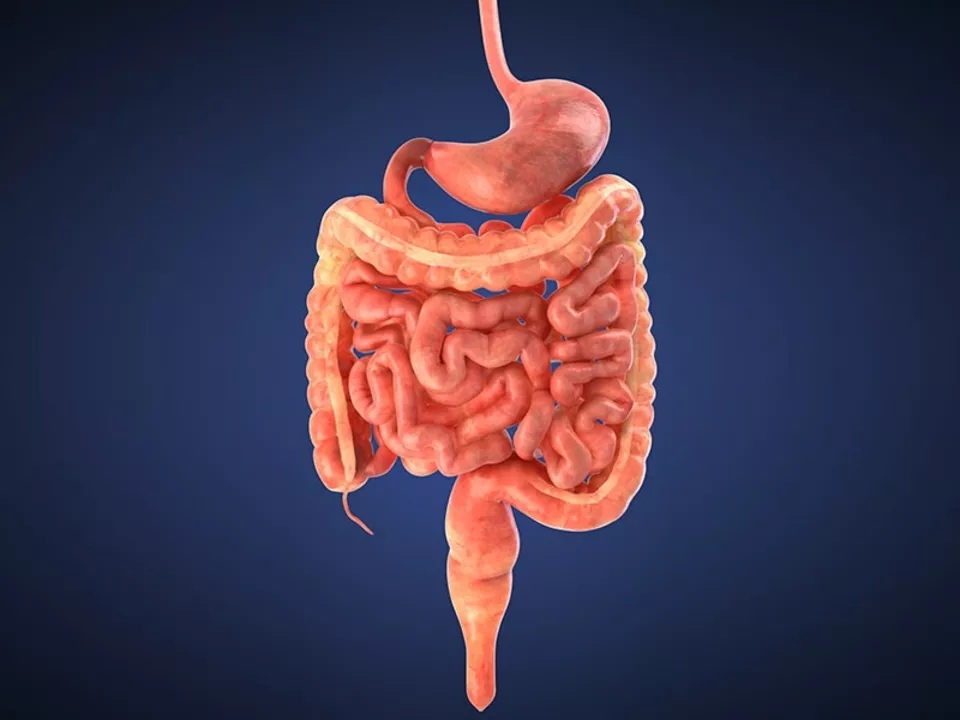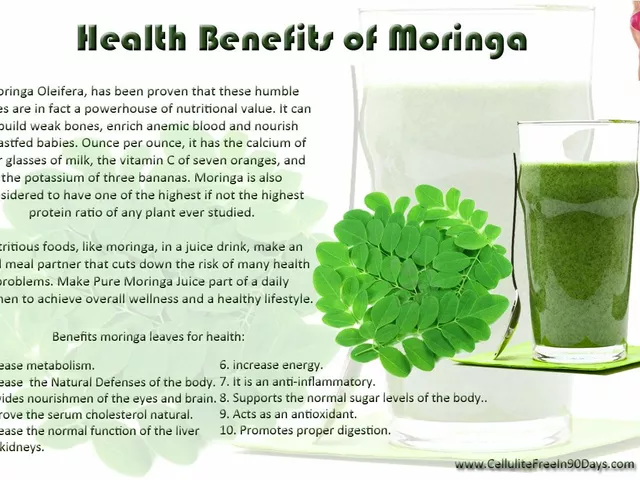Understanding Gastrointestinal Bleeding and Its Causes
Gastrointestinal bleeding is a fairly common medical condition that occurs when the lining of the gastrointestinal tract becomes damaged and bleeds. This can happen for a variety of reasons, including ulcers, gastritis, and even certain medications. In order to better understand how sucralfate can help prevent gastrointestinal bleeding, it's important to first understand the underlying causes and risk factors associated with this condition.
Ulcers, for example, are open sores that can develop on the lining of the stomach or upper part of the small intestine. They can lead to significant bleeding if left untreated. Gastritis, on the other hand, is an inflammation of the stomach lining that can also cause bleeding. In addition, certain medications, such as nonsteroidal anti-inflammatory drugs (NSAIDs), can increase the risk of developing gastrointestinal bleeding.
What is Sucralfate and How Does It Work?
Sucralfate is a medication that is commonly prescribed to help prevent and treat gastrointestinal bleeding. It works by forming a protective barrier over the damaged tissue in the gastrointestinal tract, allowing it to heal more effectively. This barrier also helps to prevent further damage from occurring, which can be especially important for individuals who are at a higher risk of developing gastrointestinal bleeding due to the use of certain medications or the presence of other medical conditions.
Essentially, sucralfate acts like a "band-aid" for the lining of the gastrointestinal tract, promoting healing and preventing further damage from occurring. It is important to note that sucralfate does not directly treat the underlying cause of the bleeding, but rather provides a protective barrier to promote healing and prevent further damage.
Benefits of Using Sucralfate for Gastrointestinal Bleeding
There are several benefits to using sucralfate for the prevention and treatment of gastrointestinal bleeding. First and foremost, it has been shown to be highly effective in reducing the risk of bleeding, particularly in individuals who are at an increased risk due to the use of certain medications or the presence of other medical conditions.
Additionally, sucralfate has a relatively low risk of side effects, making it a safe option for many individuals. Common side effects are generally mild and may include constipation, dry mouth, and nausea. However, these side effects often subside as the body adjusts to the medication.
How to Use Sucralfate for Maximum Benefit
In order to ensure that sucralfate is as effective as possible in preventing gastrointestinal bleeding, it is important to follow the prescribed dosing regimen closely. Typically, sucralfate is taken four times a day, on an empty stomach. This allows the medication to form a protective barrier over the damaged tissue without being diluted by food or other medications.
It is also crucial to continue taking sucralfate for the full duration of the prescribed treatment course, even if symptoms improve before the medication is finished. This helps to ensure that the medication has had a chance to fully promote healing and prevent further damage from occurring.
Combining Sucralfate with Other Treatments
In some cases, it may be necessary to combine sucralfate with other treatments in order to more effectively prevent or treat gastrointestinal bleeding. This may include the use of additional medications, such as acid reducers or antibiotics, to help address the underlying cause of the bleeding.
It is important to discuss any additional treatments with your healthcare provider in order to determine the most appropriate course of action for your specific situation. Always follow your healthcare provider's recommendations and never combine medications without first consulting with them.
Lifestyle Changes to Support Gastrointestinal Health
Along with the use of sucralfate, there are several lifestyle changes that can be made to help support overall gastrointestinal health and reduce the risk of developing bleeding. Some of these changes may include:
- Maintaining a healthy diet that is rich in fruits, vegetables, and whole grains
- Limiting the consumption of acidic, spicy, or fatty foods that can irritate the gastrointestinal tract
- Avoiding the use of NSAIDs, if possible, or discussing alternative pain relief options with your healthcare provider
- Reducing stress, as it can contribute to inflammation and gastrointestinal issues
- Quitting smoking and limiting alcohol consumption, as these habits can increase the risk of gastrointestinal bleeding
Conclusion
In conclusion, sucralfate can be a highly effective option for preventing and treating gastrointestinal bleeding. By forming a protective barrier over damaged tissue in the gastrointestinal tract, sucralfate promotes healing and helps to prevent further damage from occurring. When combined with other treatments and lifestyle changes, sucralfate can play a crucial role in supporting overall gastrointestinal health and reducing the risk of bleeding.





Vikas Kale
Sucralfate's mucosal adherence can be described in terms of physicochemical polymerization; it creates a viscous carbohydrate‑protein matrix that shields erosive lesions. The coating is resilient even in a low‑pH gastric environment, which makes dosing on an empty stomach critical (🕒). Clinical data indicate a ~30–40% reduction in overt GI bleeding events among NSAID users when combined with sucralfate. Moreover, the drug's negligible systemic absorption minimizes hepatic first‑pass metabolism, thus reducing drug‑drug interaction potential. 😊
Deidra Moran
Don't get fooled by the glossy pharma pamphlets. They're feeding us a narrative that sucralfate is a harmless band‑aid while the real agenda is to keep us dependent on a revolving door of pills. The hidden layers of the medical establishment are colluding with big pharma to mask the true cause-dietary toxins we ignore. I know you’re reading this in your kitchen, but think about the Wi‑Fi radiation while you swallow that tablet.
Zuber Zuberkhan
Hey everyone, just wanted to add that sucralfate can be a good bridge while we address the root causes with diet and stress management. It’s encouraging to see a protective agent that doesn’t add heavy systemic load. Keep the conversation balanced and remember every small step counts towards gut healing. 🌱
Tara Newen
From an American medical standards perspective, sucralfate is a proven adjunct, yet many overseas guidelines still overstate its efficacy. It's not a miracle cure, but it does outperform some foreign alternatives that lack FDA scrutiny. Domestic regulatory rigor ensures the formulation meets strict safety thresholds, unlike those lax imports. We should be proud of our homegrown pharmacopeia while staying realistic.
Amanda Devik
Sucralfate acts as a cytoprotective agent forming a polymeric gel barrier over ulcerated mucosa without systemic absorption. It synergizes with proton pump inhibitors to reduce acid‑mediated erosion. It is especially useful in patients on chronic NSAID therapy due to its low adverse‑event profile. It represents a cost‑effective strategy in prophylactic gastroenterology.
Mr. Zadé Moore
Sucralfate is a polymeric sulfated sucrose‑aluminum complex. It adheres to ulcer bases via electrostatic forces. The coating resists gastric acid hydrolysis. It provides a physical barrier against pepsin activity. Clinical trials show a statistically significant drop in re‑bleeding rates. The drug requires four daily doses on an empty stomach. Compliance is therefore a critical variable. Non‑adherence correlates with increased transfusion requirements. The safety profile is favorable, with constipation as the most common side effect. No systemic absorption means negligible hepatic metabolism. Its mechanism does not involve acid suppression, distinguishing it from PPIs. This distinction reduces drug‑drug interaction risk. In patients with chronic NSAID use, sucralfate reduces the odds ratio of bleeding by 0.58. The evidence base includes randomized controlled studies across multiple centers. Guidelines from gastroenterology societies endorse its use in high‑risk populations. Ignoring these data compromises patient outcomes.
Brooke Bevins
Totally get the anxiety around GI meds, you’re not alone 😊
Vandita Shukla
Listen, I’ve been tracking my own ulcer symptoms for months and I notice that stress from family gatherings spikes the bleeding risk. You might want to monitor your cortisol levels before you binge on spicy food. It’s weird but sharing personal health logs can actually help your doctor tailor sucralfate dosing more precisely.
Susan Hayes
Imagine a world where American doctors stand united, prescribing sucralfate without fearing foreign critics. The drama of debating overseas protocols is a distraction from our own proven successes. We must protect our patients with homegrown solutions, lest we surrender to imported doubts. The resolve of our medical community will define the future of GI care.
Jessica Forsen
Oh sure, because nothing says ‘I care’ like a ten‑minute lecture on lifestyle changes right after you’ve already swallowed a pill. Bravo, team, keep the sarcasm flowing while we actually try to eat our veggies. Maybe next week we’ll get a badge for ‘most enthusiastic health coach.’
Deepak Bhatia
Sucralfate helps the stomach heal. It’s easy to take and doesn’t cause many side effects. Keep drinking water and eat soft foods while on it. You’ll feel better soon.
Samantha Gavrin
Everybody tells you sucralfate is safe, but have you considered the hidden nanoparticles that might be slipping into the formula? The big labs have a vested interest in keeping us dependent on secret additives. It’s not just about a barrier; it’s about what they’re coating you with. Stay vigilant and demand full transparency from manufacturers.
NIck Brown
Let’s be clear: if you’re not following the dosing schedule exactly, you’re doing more harm than good. The evidence is crystal clear, and anyone ignoring it is just being reckless. Get it right, stick to the plan, and stop making excuses.